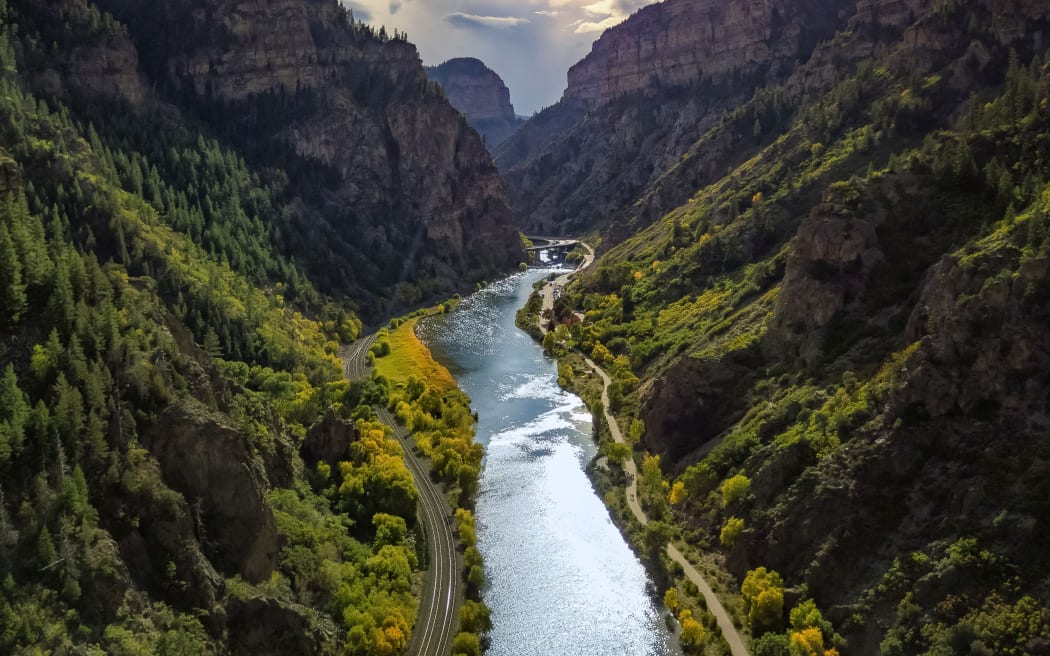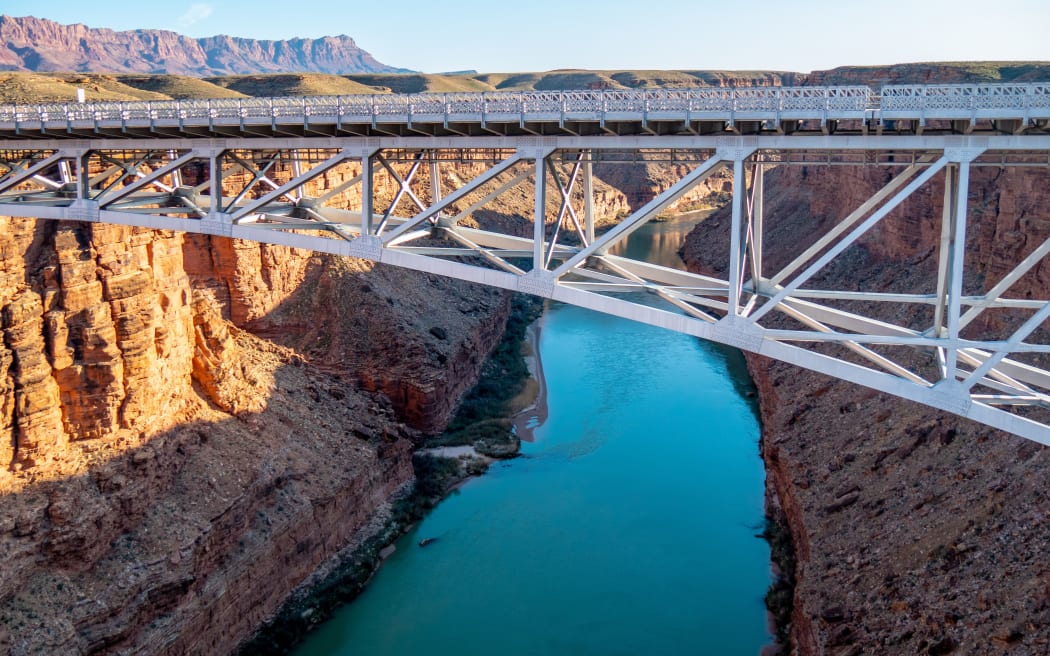The US government is sparing seven western states from mandatory Colorado River water cutbacks for now but warned on Tuesday that drastic conservation is needed to protect dwindling reservoirs from overuse and severe drought exacerbated by climate change.

The Colorado River's actual flow over the past two decades has been far lower than expected. Photo: 123RF
The US Bureau of Reclamation in June had given the states 60 days, until mid-August, to negotiate their own reductions or possibly face mandatory cutbacks enforced by the federal government. Federal officials asked for a reduced usage of 2 million to 4m acre-feet (an acre foot is 326,000 gallons or 1,480,000 litres) of water per year, an unprecedented reduction of 15 percent to 30 percent in the coming year.
But bureau and Department of Interior officials told a news conference they would give the states more time to reach a deal affecting the water supply of 40m people.
They instead fell back on previously negotiated cuts that for the second year in a row will impose reductions on Nevada, Arizona and the country of Mexico, which also receives a Colorado River allotment.
Deputy interior secretary Tommy Beaudreau said federal officials would continue working with the seven Colorado River states on reaching a deal: Arizona, California, Colorado, New Mexico, Nevada, Utah and Wyoming.
"That said, we stand firm in the need to protect the system," Beaudreau said, adding he was encouraged by the talks so far and by new federal money for water management.
Even so, federal officials said more cuts were needed, both under terms already negotiated in the 100-year-old Colorado River compact and the 21st century reality of human-influenced climate change resulting in hotter temperatures and drier soils.
A 24-month forecast released on Tuesday showed falling levels of the two largest reservoirs on the river, Lake Mead and Lake Powell, will trigger the previously negotiated cuts.
Arizona, Nevada and Mexico will have supplies reduced for a second straight year: 21 percent for Arizona, 8 percent for Nevada and 7 percent for Mexico.

The Navajo Bridge over the Colorado River in Arizona. Photo: 123RF
They are the first to be subject to cutbacks under the Colorado River compact. Last year, they got hit with 18 percent, 7 percent and 5 percent reductions, respectively, for the first time ever.
Negotiations over further reductions is creating tension among the states, especially as California, the largest user, has so far avoided cuts triggered by low reservoir levels.
Lake Mead and Lake Powell are barely above one-quarter of their capacity. If they fall much lower, they will be unable to generate hydroelectric power for millions in the West.
"It is unacceptable for Arizona to continue to carry a disproportionate burden of reductions for the benefit of others who have not contributed," Ted Cooke, general manager of the Central Arizona Project, said in a statement.
John Entsminger, general manager of the Southern Nevada Water Authority, said he had hoped for more urgency from the bureau on Tuesday.
"It is possible for us to make the larger necessary cuts, but I think it is going to take everyone at the table realising that everyone needs to suffer a commensurate level of pain to get there," Entsminger said.
The 23-year megadrought, the worst on record in at least 1200 years, is testing the strength of the compact, which a century ago assumed the river could provide 20m acre-feet of water each year. The river's actual flow the past two decades has averaged 12.5m acre-feet, leaving state water managers with more rights on paper than water that exists in the river.
"As we have emphasised since taking office, the circumstances we face will require swift action and increased water conservation in every state, from every sector," said Tanya Trujillo, the Interior Department's assistant secretary for water and science.
-Reuters

